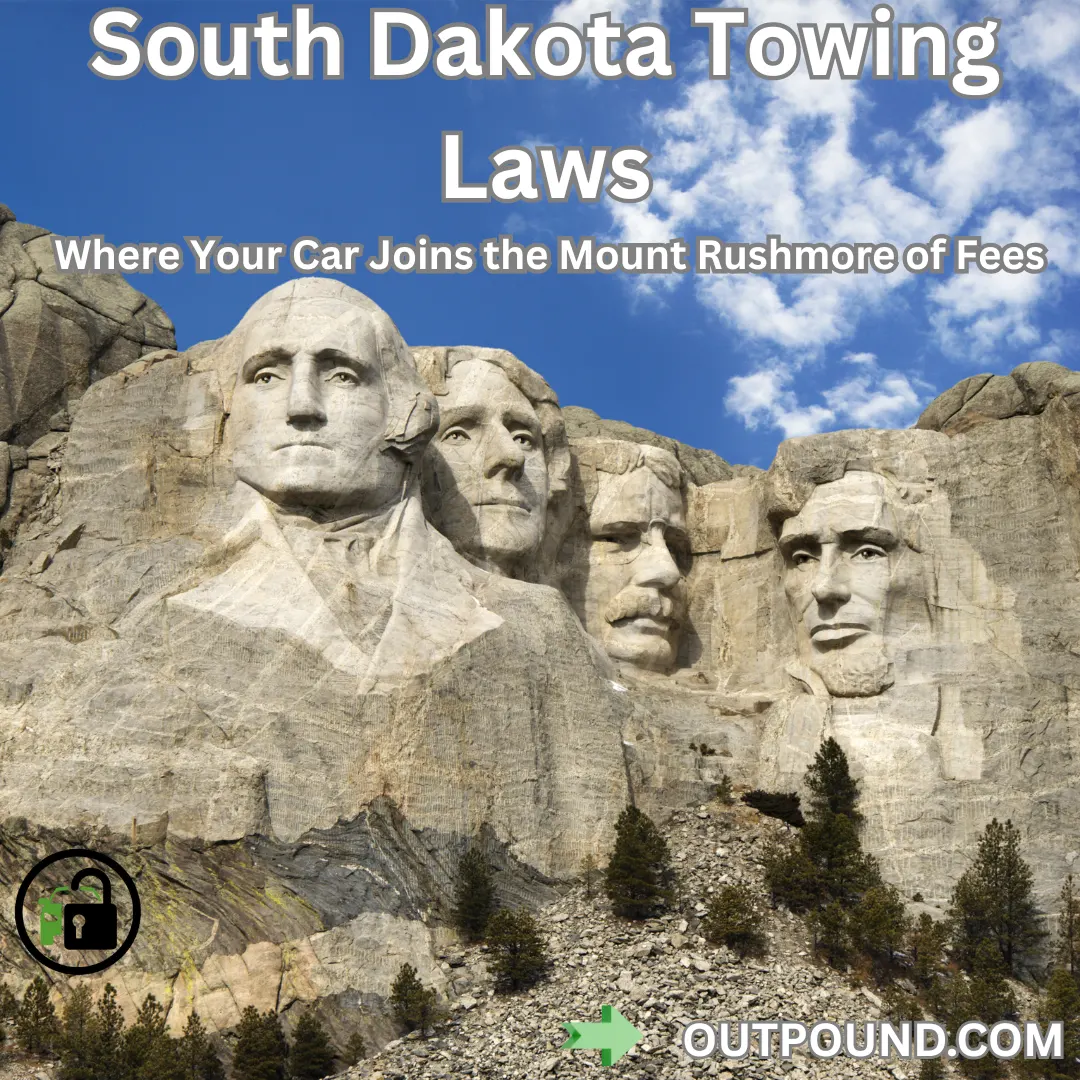Where Your Car Joins the Mount Rushmore of Fees

South Dakota: land of prairies, Mount Rushmore, and tow trucks that take “open roads” literally. From Sioux Falls to Rapid City, parking mistakes can quickly turn your vehicle into a victim of a hook-and storage nightmare. Between private property tows, city-authorized removals, and small-town bureaucracy, even a short stop can feel like a full-blown expedition.
Who Can Tow?
Towing companies in South Dakota must be licensed and insured to operate. Authorized tows occur under three primary scenarios:
- Law enforcement – police can order your car removed for illegal parking, abandoned vehicles, or hazards.
- Municipal authority – towns and cities may authorize towing for street cleaning, snow emergencies, or special events.
- Private property – property owners or management can request towing if vehicles violate posted rules.
Private property towing is widespread, particularly in apartment complexes, shopping centers, and college campuses. The law requires proper signage, but “proper” can be buried in a corner, hidden behind a snowbank, or otherwise invisible until your car is already gone.
When Can They Tow?
Vehicles may be towed for:
- Blocking driveways, fire lanes, or handicap access
- Expired registration or license plates
- Abandoned or inoperable vehicles
- Violating private property parking rules
- Unpaid tickets or fines
Rural South Dakota presents its own challenges. Tows may involve long hauls to distant impound lots, inflating costs and stretching patience. Urban centers like Sioux Falls and Rapid City often see towing spikes during events, busy downtown hours, or seasonal street cleaning.
Notification Requirements
South Dakota law requires tow companies to notify local law enforcement shortly after towing a vehicle. Police log the vehicle so owners can locate it. Delays are common, and many drivers only learn their car has been towed after visiting multiple impound lots or receiving a notice in the mail.
Fees and Storage
Base towing fees generally range $100–$200, with daily storage fees around $20–$35. Additional fees— after-hours release, mileage, administrative charges, or “special handling”—often appear without warning. Rural areas can be especially costly if the tow involves long distances or limited impound availability.
Vehicle Recovery
To reclaim a vehicle in South Dakota, you generally need:
- A government-issued photo ID
- Proof of ownership (title or registration)
- Proof of insurance
- Payment for all fees
Cash is usually preferred, though some lots accept cards. Limited hours and paperwork errors can add days of storage fees. Even minor mistakes—like mismatched registration or leased vehicles under a company name—can complicate retrieval.
Legal Recourse
If a tow was illegal or excessive, vehicle owners may dispute the charges in municipal court or small claims. Evidence such as photos, tow notices, and receipts is critical. Despite legal options, most drivers pay first and argue later, knowing the tow companies rely on impatience.
Towed in South Dakota? Brace Yourself and Reclaim Your Ride
South Dakota’s towing system is legal, structured, and very good at testing patience. Between municipal rules, private property regulations, and unpredictable rural conditions, fees can escalate quickly. OUTPOUND.com can help you locate your vehicle, verify charges, and plan your recovery before storage costs grow taller than the Badlands.
Because in South Dakota, parking wrong isn’t just inconvenient, it's practically a state sport.

